by Sue A. Oliver
When the Nazis paraded in triumph down the Champs Elysees on June 14, 1940, Sara Hauptman shook her fist at them from the crowded Parisian sidewalk. For the next five years her encounters with the occupying Nazi forces, both in France and in her homeland of Belgium, grew more terrifying. As a 21-year-old Jewish mother at the beginning of World War II, she had no idea she would become a lion tamer working with the Belgian resistance to save downed American flyers.
Raised a Tomboy Amid Eight Brothers
Sara Refka Rozen was born in Laskaszew, Poland, on August 15, 1918. When she was just a baby, her parents fled the organized attacks on Jews in Poland for religiously tolerant Belgium. Her father, Gedalia Rozen, opened an epicerie, a fruit and vegetable store. Sara grew up in a large household with eight brothers and two sisters. Since she was the only girl in the family until the birth of her first sister, 16 years her junior, Sara became a tomboy who learned how to defend herself. During her teens she trained to become a nurse. In 1936 her father died of prostate cancer, and this left the family destitute.
Against her mother’s wishes, Sara eloped to Antwerp in 1938 with a tailor named Nathan Hauptman, a friend of her older brother. Nine months later on April 20, 1939, she gave birth in Brussels to their son, Guy, who unfortunately shared the same birthday with Hitler.
The Hauptmans recognized the approaching German danger; however, poverty and immigration quotas trapped them in a Europe collapsing under Hitler’s blitzkrieg.
Escape To Paris And Then Its Fall
After the Polish defeat of September 1939, the Polish government-in-exile regrouped in Paris. Polish officials sent draft notices to their citizens living in other European countries. Nathan Hauptman, who still held Polish citizenship although he had lived in Belgium since he was a teenager, received his notice.
A few weeks after Nathan boarded a train for Paris, Sara followed him. She carried their four-and-a-half-month-old son, four bottles of milk, and a suitcase. Sara showed the train conductor a letter from Nathan, and he allowed her to board the train to Paris.
Germany invaded Belgium and France on May 10, 1940. Eighteen days later Belgium capitulated. The French and the Poles could not hold back the overwhelming Nazi forces. When the Polish forces scattered, Nathan deserted the army. He owed no allegiance to a country that had persecuted his Jewish family, and he was far more concerned with protecting his wife and infant son. With his small family reunited, Nathan tried to arrange for their return to Brussels, but on June 14 the Nazis entered Paris.
A Surprise Visit From SS
Sara feared the Nazis would discover Nathan’s ties to the Polish Army and arrest him; therefore, the young Jewish couple took their son to a French farmer’s wife on the outskirts of Paris, where he would be safer than remaining with them in the city.
Seven months later, in late January 1941, Sara’s greatest dread became reality. Alone in their Parisian apartment while Nathan tried to arrange transportation back to Brussels, Sara heard the unmistakable thudding of boots in the hallway. She prayed they would pass by, but they stopped outside her door. Had the Nazis discovered she was Jewish, or had they discovered Nathan’s military records? Heavy pounding destroyed any hope of escape.
When she opened the door, an SS officer’s black uniform filled the portal. He brushed Sara aside and ordered his men to ransack the house. When the Nazis found a number of men’s suits in her possession, they arrested her. She had no idea why the suits interested them. Naturally, a tailor would have many suits, but she would not betray Nathan by telling them his profession or whereabouts. To protect her husband, she lied about the suits and said the clothes had been in the apartment when she rented it. Her lie fell apart when they discovered men’s underwear in the dresser.
Young Family Reunited In Belgium
The SS officers took her to a prison on the outskirts of Paris. During her incarceration she found out the Nazis suspected she was an accomplice who furnished German deserters with civilian clothes. After eight months the Nazis released her with no explanation.
In the interim, Nathan had picked up Guy from the farmer’s wife and had taken a clandestine route back to Brussels. He could not help Sara after her arrest, so he decided to get their son to her family during those uncertain times.
After she was released, Sara’s friends, at great personal risk, drove her four hours to the French-Belgian border. There they bribed a guard to let her enter Belgium. She had no idea if she would be reunited with her husband or walk into a Nazi trap.
When she saw Nathan, she thought the worst was over. She envisioned a return to a normal life in her homeland, but it was not to be.
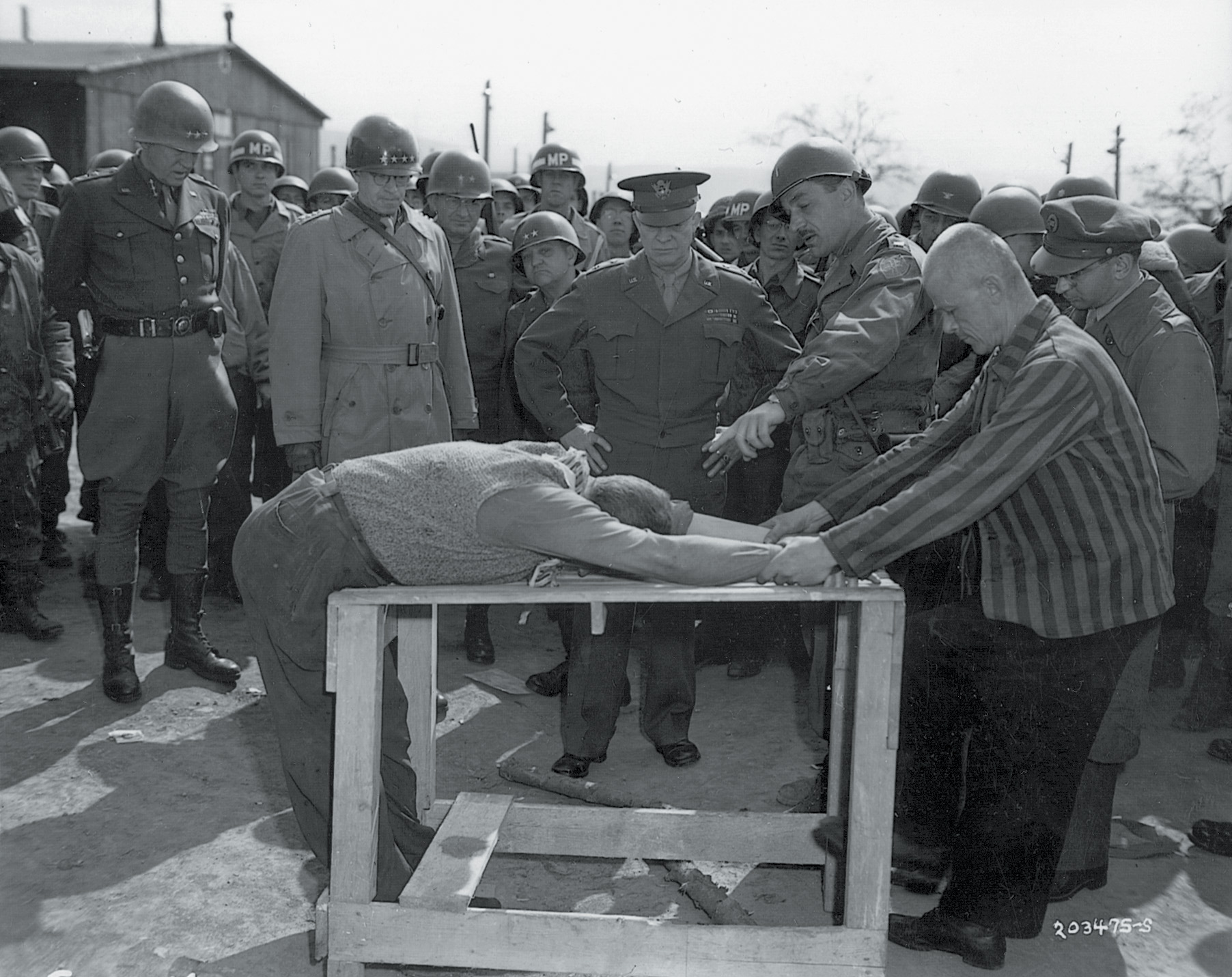
concentration camp. Patton and Bradley are to his right.
“Life Not Worthy Of Life”
In Belgium the authorities found out about Sara’s Jewish heritage when she filled out the forms for her identity papers. Juif, the French word for Jew, branded her as “life not worthy of life.”
Loudspeakers announced new decrees against Jews weekly. By May 1942 Jews had to wear the Star of David on their clothing. Nathan lost his job when the Nazis closed his cousin’s tailor shop, and Sara discovered she was pregnant again. As persecution increased, they took their son to Sara’s former nanny, Catherine, who lived in a little ranching community outside Brussels. The small village would not have as many prying officials as a large city. Catherine took care of Guy and told neighbors he was her grandson. With his blond hair, he could pass as a Gentile.
On July 2, 1942, tragedy struck. The Nazis arrested Sara’s mother and younger brother, Albert, while they shopped at the neighborhood grocery store. To save her other brothers and sisters, Sara hid them with Catholic nuns and priests. Then she and Nathan went into hiding also, but in different locations. The cold cement of a basement, a dark cellar, or the bare floor of a drafty attic became a haven.
Dangerous Labor
Being pregnant made her situation more precarious. Not everyone was willing to take in a woman who was expecting a baby. Usually single women were more willing to risk their lives than women who were forced to think of the safety of their children first.
Sara found refuge with a lady named Sophie. When she went into labor Sara prayed a Nazi patrol would not stop them on the way to the hospital. She would not be able to tell a convincing lie during labor, and she had Jewish identity papers.
Eight days after Sara gave birth to their second child, Monique, the Nazis arrested Nathan on the steps of the hospital. On October 14, 1942, they took him to Malines, a camp located near the small town of Mechelen just north of Brussels.
Sara returned to Sophie’s home with the baby. A few months later, the Nazis searched Sophie’s house. Hiding in the basement, Sara covered Monique’s mouth to keep the Nazis from hearing her cries. Upstairs Sophie tried to convince the soldiers of her loyalty by showing them Hitler’s picture on her wall. When she heard the knock, she had turned over her family picture to reveal Hitler’s photograph on the reverse side. Usually this was enough evidence to prove one’s sympathies.
Tense Moments In Cellar
Sara was unable to find out more information about her husband, mother, or brother. Hoping to get another brother, Simon, out of the country, she made contact with the underground. She was sent to St. Gilles, a southwest suburb of Brussels. At the courthouse she had an arranged meeting with Jean Marie Moortgat, the chief of police, who also happened to be the head of the resistance in St. Gilles.
Before the meeting Moortgat had checked on Sara’s background. After listening to her request, he arranged for her brother’s passage to Sweden. That same day Moortgat recruited Sara to work in the basement of the courthouse making false identity papers. She would take the papers of a deceased person and change the date of birth. Underground workers used these forged papers for those escaping the Nazi stranglehold.
Disguised As a Boy, Sara Smuggles Out Messages
Toiling at night in the courthouse, Sara proved herself reliable and smart, so Moortgat gave her new assignments. At 4 feet, 11 inches tall she could pass as a younger person. She wrapped her chest tightly, put her hair under a cap, and dressed as a boy. She emptied waste containers from the jail cells located in the courthouse. If an underground member had been arrested, he might get a final message out in the waste pail. Sara retrieved the messages and passed them along to Moortgat.
During another assignment she met a former Belgian Supreme Court justice, Maurice Gilbert, who hid downed Allied flyers and others in the attic of his house outside Brussels on the way to Waterloo. Wearing a wig and using an inside pocket with two openings (so they could be easily discarded) to conceal the papers, Sara delivered the forged documents for the flyers to Gilbert. Once she even transported a parachute recovered by the resistance before the Nazis found it. She strapped the bundle on the back of her bicycle like laundry and rode past the patrolling Germans. Once Moortgat received the parachute, he arranged to have it buried.
Lookout For A Saboteur
The people of St. Gilles respected Jean Marie Moortgat. His workers knew he expected no more of them than he required of himself. His wife and young son, Robert, would be sent to a camp or murdered in front of him if the Nazis unearthed his activities. However, this man, whose code name in the underground was Cupid, put his life on the line for his son’s future.
Sara’s riskiest assignment involved the targeting of a Nazi-occupied building. She served as the lookout for a saboteur. Sara wore a whistle under her blouse to warn the bomber if a soldier appeared on the usually quiet street. If she blew the whistle, the bicyclist would ride past without taking action. Dressed in a black leather jacket, the saboteur approached the target. After deftly tossing a grenade into an open basement window, the bicyclist turned down a narrow alley and disappeared. Sara took cover in another side street. In seconds the grenade blew out the lower portion of the building. Heart pumping and adrenaline rushing, Sara grabbed her hidden bicycle and zig-zagged away. The blast killed 12 Nazis. Later that same day, vengeful Germans pulled 12 innocent Belgians off the street and shot them.
Sara blamed herself for the Belgians’ deaths. Moortgat assured her the Nazis needed no provocation to murder, and she had simply carried out his order, but Sara could not overcome her guilt-ridden conscience. She had lived when others died. The next day, when three Nazi soldiers came to the courthouse, she thought they had come to execute her. As she tried to file papers, her hands shook. Sara’s coworkers stood in front of her, blocking the Germans’ view of her shaky movements. Fortunately, the Nazis left without noticing her.
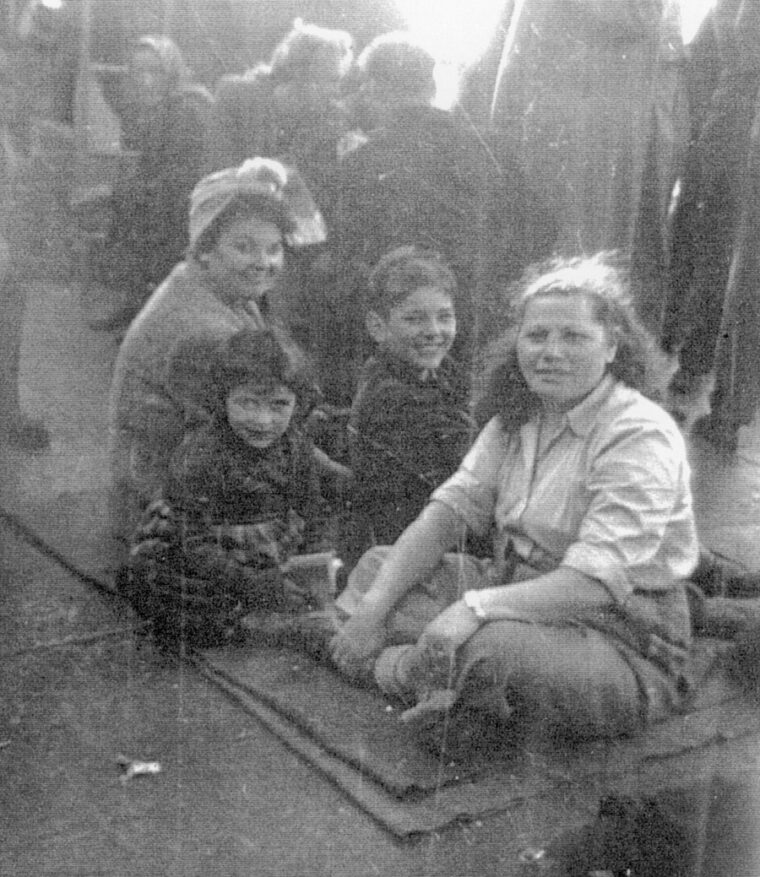
A New Assignment In Entertainment
To get away from working in the courthouse, Sara requested a new assignment. The underground found her a job as an usher at the Cirque Royale, a large entertainment arena in downtown Brussels. When she was off duty, she would still deliver messages and documents for the underground.
Her job at the arena involved charging the Germans for folding-chair rental. If one got up for a short time, she took the chair away and charged him again when he returned. The amused soldiers called her a little devil, kleine Teufel, and flirted with her. Each time she took a chair, the soldiers saw it as a sexual game of cat and mouse. The stakes got higher and higher with each encounter. Sickened by their advances, she looked for a new job at the arena.
She heard about an opening in the circus that performed at the Cirque Royale and accepted a position to train as their new lion tamer. Six weeks after her training, Sara starred as the lion tamer who looked like a child. After working around the Nazis, going into the ring with lions and tigers paled in comparison. She said, “Nazis and animals are a lot alike, but the animals are far more predictable. So there I was. Center ring. The Jewish lion tamer. Only no one knew I was Jewish.”
Trusted Friend Of Big Cats
Sara learned the routine and had the big cats leaping through rings of fire, pawing at her with mock ferocity, and one even allowed her to put her head in his mouth. The only damage ever inflicted was a little lion saliva on her hair.
The lions trusted her so much that one female, Mitzi, allowed Sara to be in the cage while the lionness gave birth. Sara held the female cub as Leonard, the ringmaster, photographed them. Later Sara incorporated the cub into the act with Mitzi carrying it from the ring in her mouth.
Even though her work in the circus kept her busy, Sara continued her underground activities. Moortgat gave her cyanide pills to carry in her purse should she be captured, but she feared that her children would accidentally find them when she visited the nanny’s home, so she flushed the pills. Moortgat told her if the Nazis arrested her for being Jewish or for being a resistance worker, he could do nothing for her. Rejecting the cyanide, she decided to take her chances on talking her way out of situations.
A Close Call On Tram
Being a natural actress and knowing German saved her when a Jewish man denounced her on a public tram while attempting to save himself from arrest by cooperating with the Nazis. Even though she had dyed her hair blonde, the man recognized her. By flirting with a German soldier and speaking perfect German, she avoided arrest. She offered the soldier free tickets to the circus. Enchanted by her wiles, the soldier threw the Jewish man off the tram and arrested him.
Although Sara hid her involvement with the underground, the Nazis eventually did arrest her. On a Tuesday afternoon in July 1944, Sara returned to her former apartment to find Simon, her brother who had been safe in Sweden. Stunned that he would return, she confronted him. He told her the Swedish woman with whom he was hiding kept making unwanted sexual advances. Simon missed his girlfriend, and love had prompted his return.
After trying to persuade him to leave and find another place to stay, Sara realized the futility of her argument. However, they had made the mistake of staying too long. A neighbor probably turned them in. Sirens announced that Gestapo agents were coming for them.
Sent Away To The Camps
The Gestapo broke open the door and beat Simon. He told them he was Belgian and showed them the Gentile papers Sara had made for him. They called him a Jew and knocked out his front teeth. Sara swore they were Belgian and not Jewish. Simon’s eyes begged her to keep silent. After looking at Simon’s blood splattered all over the chair, the floor, the carpet, and on her dress, she feared the Nazis would beat him to death. After the next blow, Simon passed out. “Stop hitting him. We’re Jewish,” Sara said with resignation. It was far better to face the work camps than watch them kill her brother.
The Nazis sent Simon and Sara to Malines, the camp north of Brussels where Nathan had been taken. For several weeks they stayed at Malines. Then Sara saw the name she had been using, Sura Miodownik, listed on transport number 26, scheduled to depart on July 31, 1944. Simon insisted on going with her even though his name was not listed.
Banished To Hell
Malicious guards with bayonets herded them into cattle cars for a three-day train trip to a hell in Poland called Auschwitz. With no water, no food, no toilet facilities, the searing heat, and untreated bayonet wounds, many prisoners died. Sara and 19 other Belgian women were sent to the showers instead of to the gas chambers.
According to the publication Auschwitz Chronicles, “563 Jews from the Malines camp, among them 276 men, 24 boys, 240 women, and 23 girls, arrive in the twenty-sixth RHSA transport from Belgium. After the selection 223 men, given Nos. B-3450-B-3672, and 138 women are admitted to the camp. The women are housed in the transit camp in Birkenau and do not receive a number at first; they are first registered on August 22. The remaining 202 people, among them 47 children, are killed in the gas chambers.”
A Jewish laborer tattooed a number on Sara’s arm. Sara Hauptman disappeared and in her place stood inmate A24130.
Treated By Dr. Mengele
Sara survived almost three months at Auschwitz. During that time fellow Jewish prisoners called Kapos, who cooperated with the Nazis for a little extra food, punished her for fighting. Another woman had stolen shoes belonging to Sara’s friend Frieda. Sara punched the Hungarian woman to retrieve the wooden shoes, for without shoes Frieda could not survive. As punishment for her defiance, Sara held two bricks while she kneeled on razor-sharp rocks. If she dropped a brick or fell over, the Kapos would kill her. Knowing her children depended on her, she willed her arms to stay raised and hold the bricks. She imagined her children as the weights.
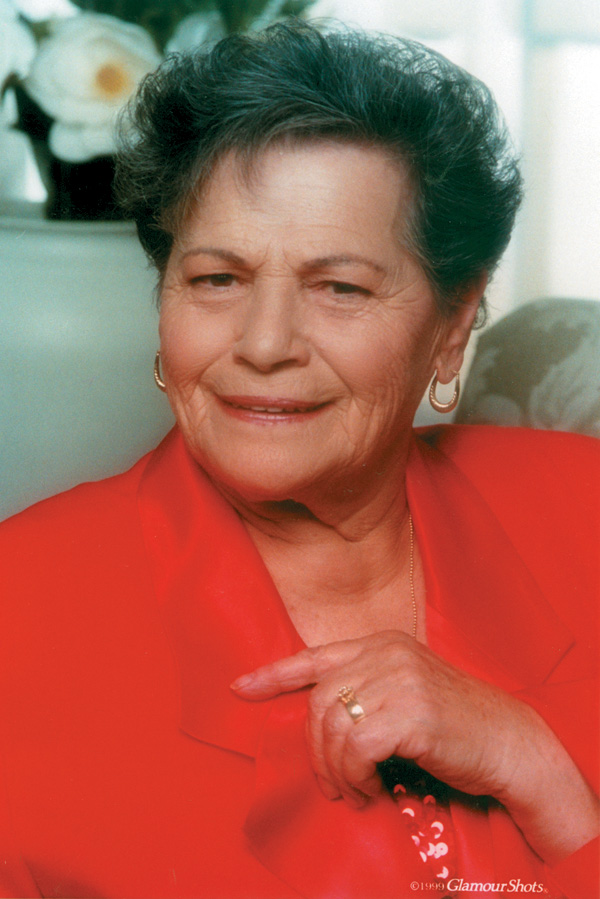
Sara became a sterilization victim of the infamous doctor, Josef Mengele, who conducted heinous experiments on Auschwitz inmates. Selected at random for an experiment, Sara and Frieda were taken to Mengele’s “hospital.” Both underwent the same chemical insertion which caused horrible cramps and swelling. Frieda worried she had been impregnated with some monstrosity. Sara could not assuage those fears until enough time passed and they showed no signs of pregnancy. In later years Sara said, “Thank God, I had my kids before the war. Afterward I could never have any.”
Transferred To Dachau To Repair Train Tracks
A Belgian Kapo who had known Sara in Brussels told her he had seen her husband Nathan at Auschwitz. Nathan weighed less than 80 pounds and had been sent to the gas chamber. He had witnessed Nathan at death’s door.
Sara wanted to touch the electrified wires and end her life. She had no will to live without her beloved Nathan, but again the thought of her children as orphans kept her alive.
The Kapo arranged for Sara’s transport to Dachau, another concentration camp. She and the other surviving Belgian women traveled in a cattle car to the camp in October 1944. The Kapo told her he did not know what she might expect at Dachau, but she did not care. Any place had to be better than Auschwitz.
Arriving at Dachau on October 27, Sara was assigned to Kaufering, one of 36 subcamps. She worked in a Fixkommando, a group that repaired train tracks. Allied bombers destroyed the tracks during the day. At night Sara and the others repaired them.
Brutally Punished For A Small Act Of Charity
During the first few days at Dachau, Sara committed the unforgivable act of giving away her soup to a starving teenager. For this act of charity, the German guards forced the Kapos to beat her using the whipping horse. They inflicted 25 lashes on her back. She passed out after the second blow. Waking up in what could loosely be called an “infirmary,” she returned to work with gaping wounds on her back.
While repairing the tracks, she met a German farmer, Heinz, who wanted to help her escape, but she refused. The guards would kill the entire group if one person escaped. During this time she received news of Allied victories and their proximity.
A few weeks later, guards told the prisoners to stay in the barracks or they would be shot. They remained in the barracks for three days until their curiosity could stand the wait no longer. The first one to leave, Sara found the soldiers gone. She could hear tanks in the distance and feared the Germans’ return. However, once they saw the American flags they began to rejoice at their liberation. In their happiness some of the prisoners ran to the wires, unfortunately not realizing that they were still electrified. They were tragically electrocuted when they should have been freed.
Pitching In As Nurse During Liberation
The American soldiers who liberated Kaufering could not speak the European languages of the inmates, but they managed to communicate with sign language. The inmates painted American flags on the sheets they found in the German quarters. A joyous cacophony of thanksgiving in a babble of languages ensued.
Battle-hardened American soldiers wept when they discovered the starving, skeletal prisoners. In their haste to help, they gave the inmates too much rich food at one time. The digestive systems of the ravaged victims could not cope with the shock of so much food, and many of these pitiful walking corpses died in the arms of their liberators. A hospital was set up at Landsberg, another subcamp. Trained as a nurse, Sara worked in the infirmary to help those weak from typhus and starvation.
Now considered a displaced persons’ camp, Landsberg became a center of activity. General Dwight D. Eisenhower, the supreme Allied commander, toured the camp. When the former inmates saw his vehicle approach, they gathered to watch. Sara pushed her way to the front where she could see. The general addressed the crowd, but no one could speak English.
Sara Serves As Translator For General Eisenhower
After several attempts at asking questions in English, Eisenhower searched the faces for signs of understanding. Sara realized his dilemma and piped up, “Who speaks French?” The general’s chauffeur, Kay Summersby, answered Sara in French. Ms. Summersby served as a translator between Sara and the general.
Sara gave Eisenhower a report on the infirmary and the former prisoners. General Eisenhower gave her an MP band and told Sara through Summersby that she would be the official liaison between the American forces and the liberated inmates. At the end of their conversation, the general invited Sara to come to the United States. He assured her she would like his country.
Miraculously, at the hospital in Landsberg, Sara found Nathan. They both fainted when they saw each other. He thought she was still at home in Brussels, and she had been told he was dead. Indeed, he had been sent to the gas chamber. At the door a Polish guard heard the last name Hauptman. The soldier had sworn to save the life of a Hauptman since he had known a generous man with that last name before the war. That generous man turned out to have been Nathan’s father. The soldier arranged for Nathan to be fed and given an easier assignment than the coal mines at Auschwitz. When the soldier was sent to the Russian front, he made sure Nathan was transferred to Dachau.
A Long Life As An American Citizen
In the Holocaust Sara had lost her mother and three brothers. Her mother and Albert died in the gas chamber. Nazi soldiers executed Jean when he tried to escape from a train. Simon never returned from Auschwitz and died, probably from typhus, shortly after Russian troops liberated the camp. Sara’s younger siblings immigrated to Canada, and one brother joined the Zionist forces to fight for Israel’s independence.
Sara had never forgotten Eisenhower’s invitation, so after reuniting with their two children, she and Nathan and the family immigrated to the United States in 1951. After processing through Ellis Island, they moved to El Paso, Tex. Five years later, they became U. S. citizens. Sara and Nathan later moved to Colorado Springs and lived there for over 30 years. Sara passed away in December 2014 at the age of 96.
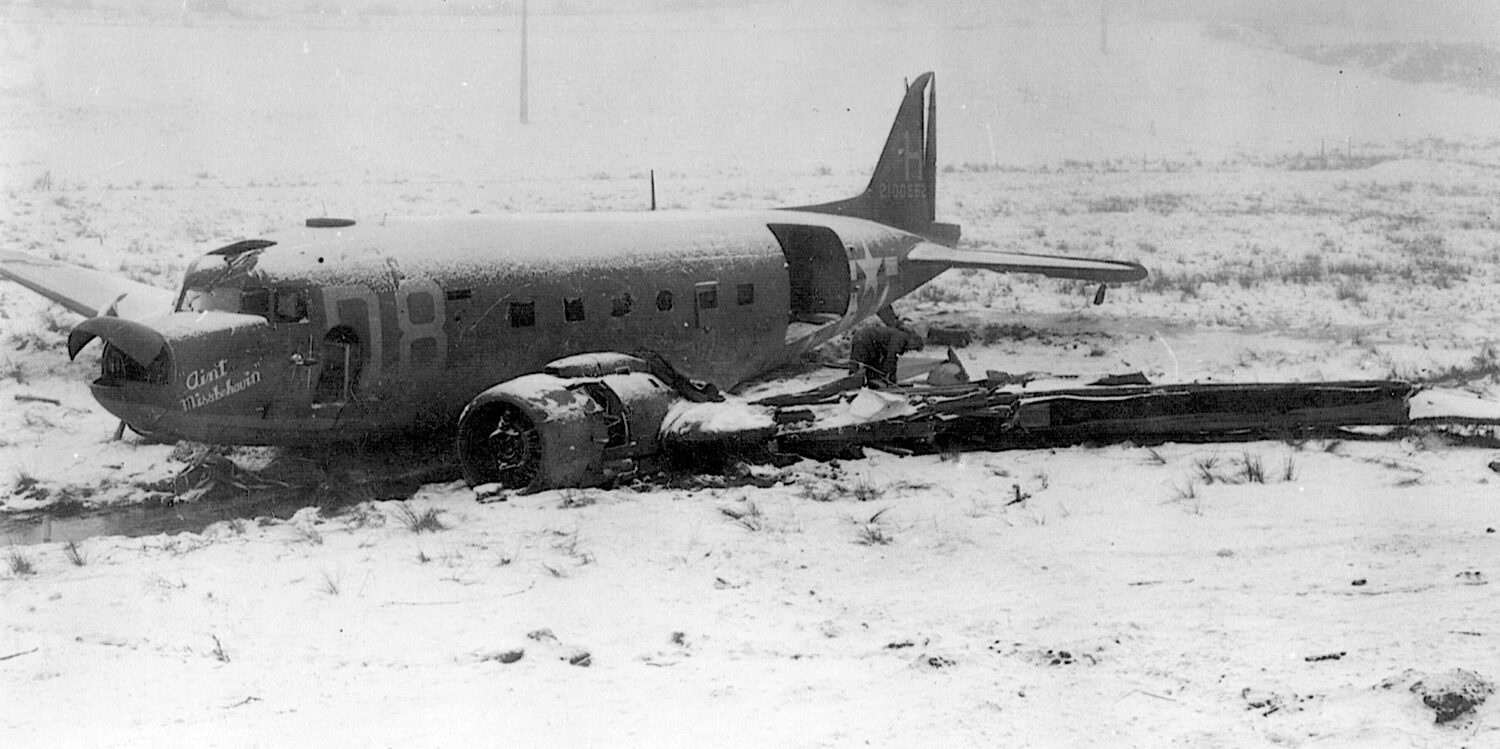
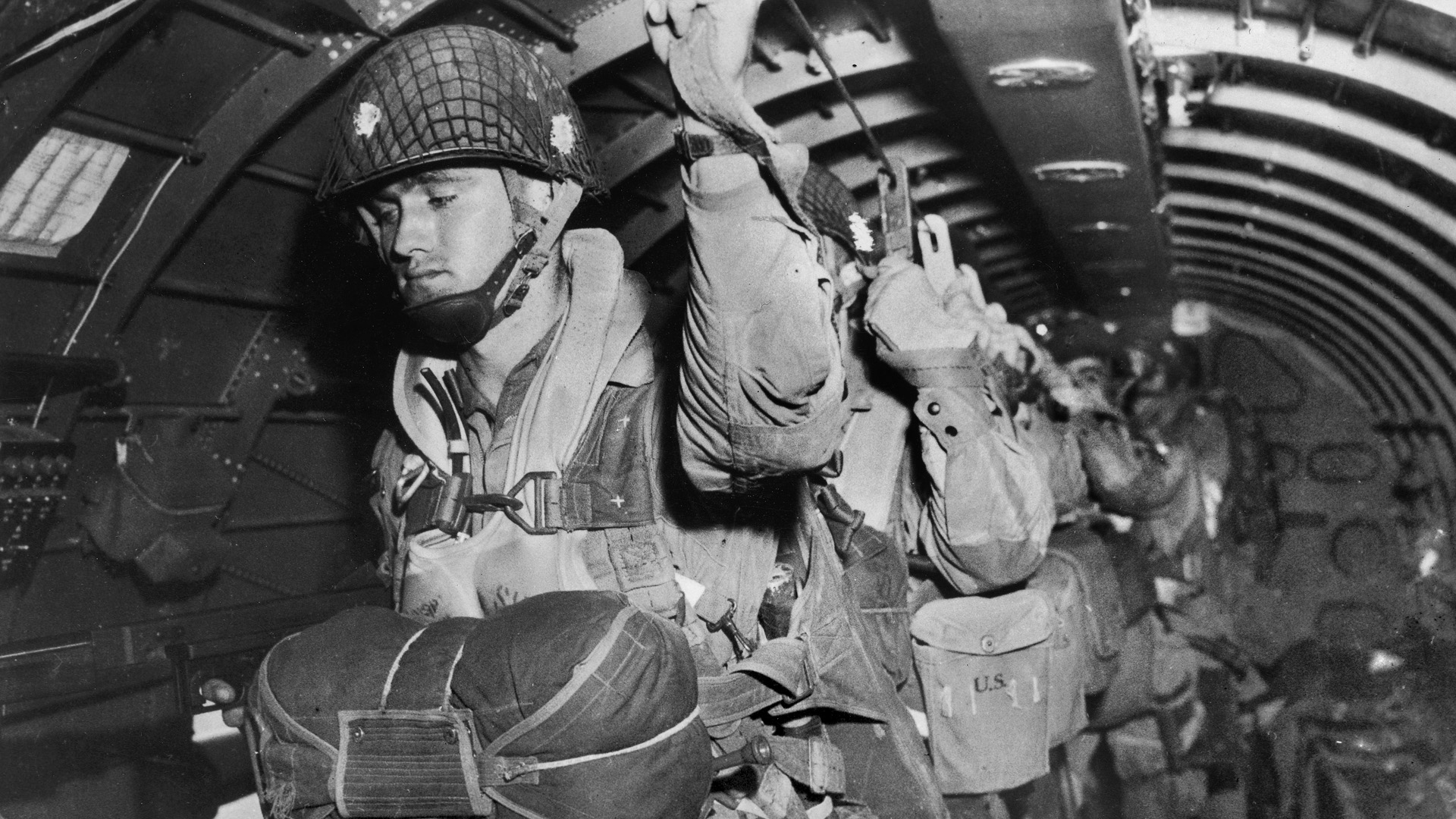
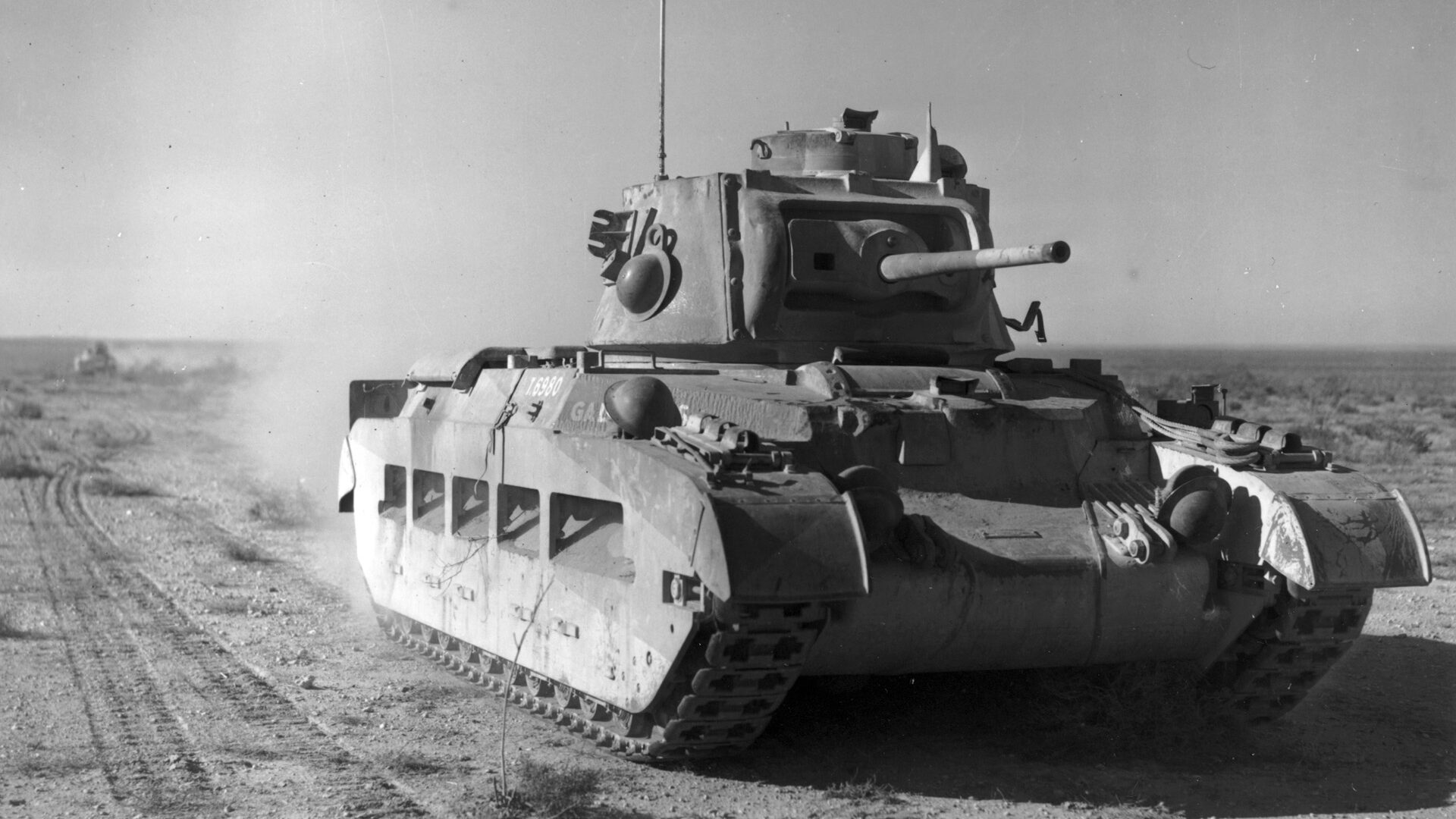
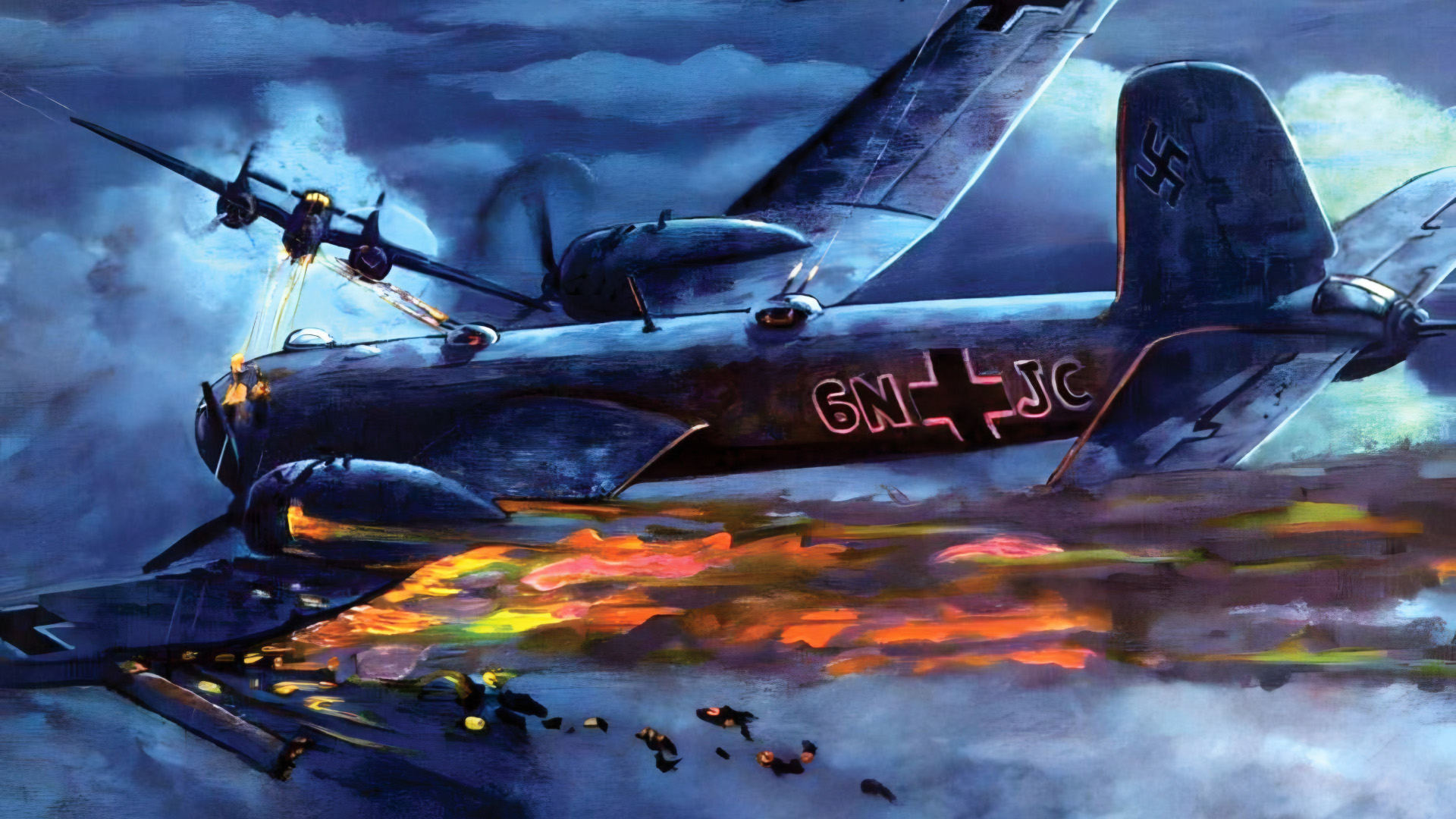
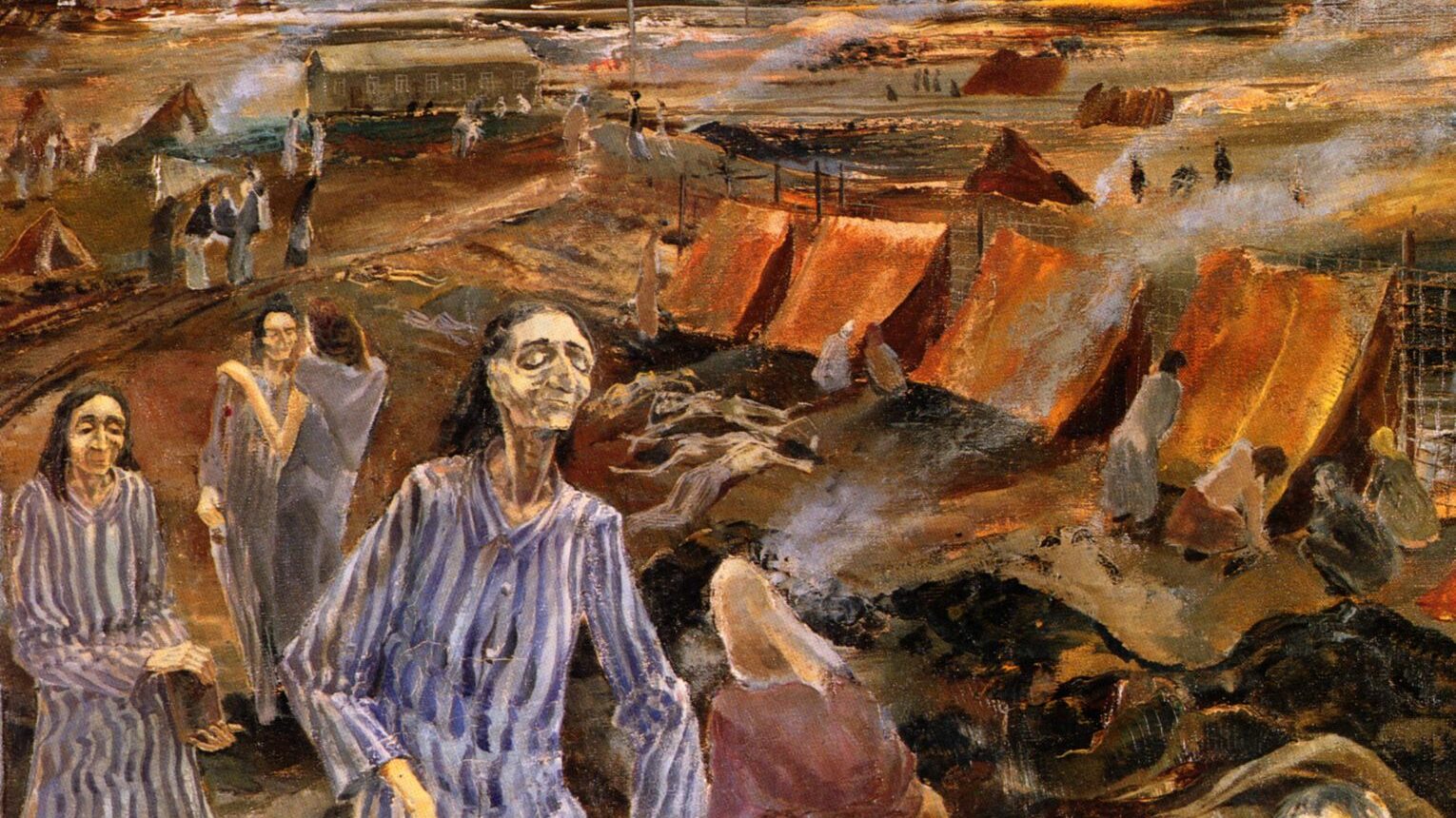
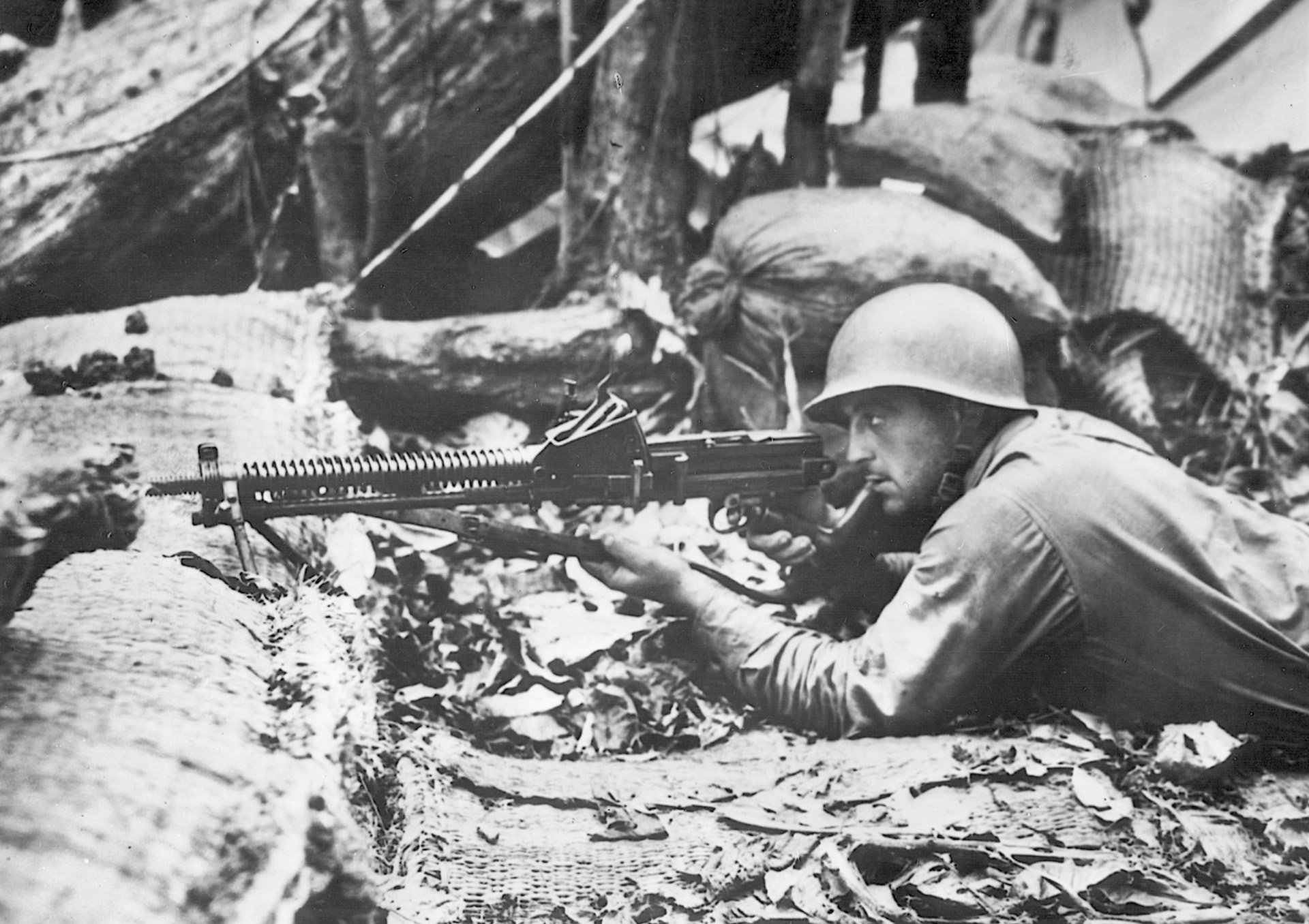

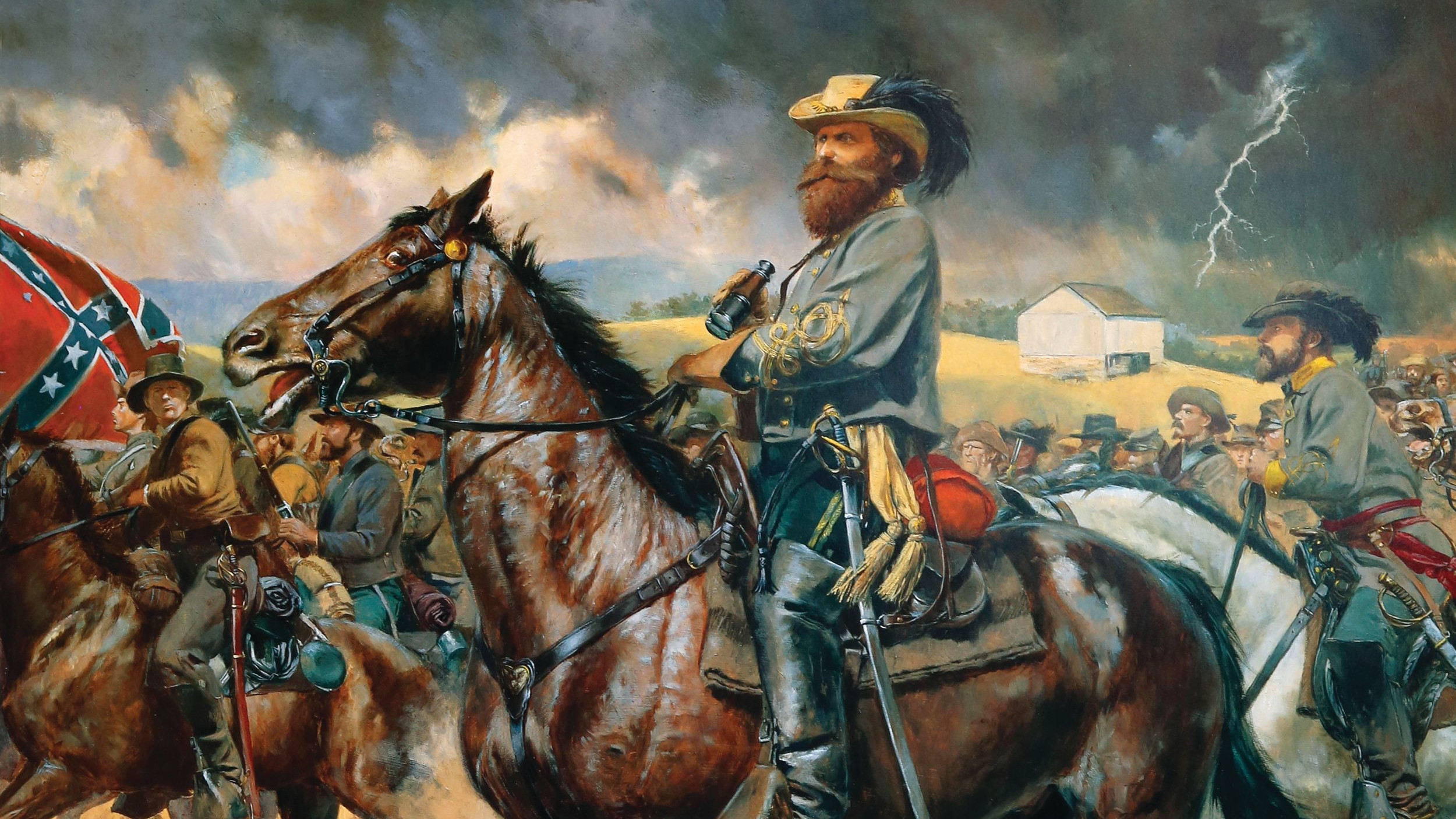
Join The Conversation
Comments
View All Comments